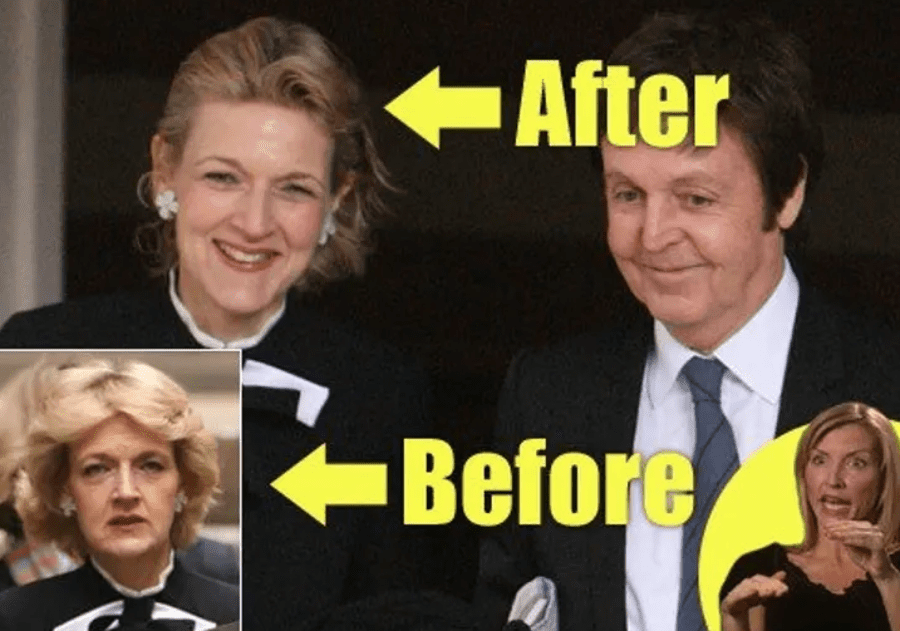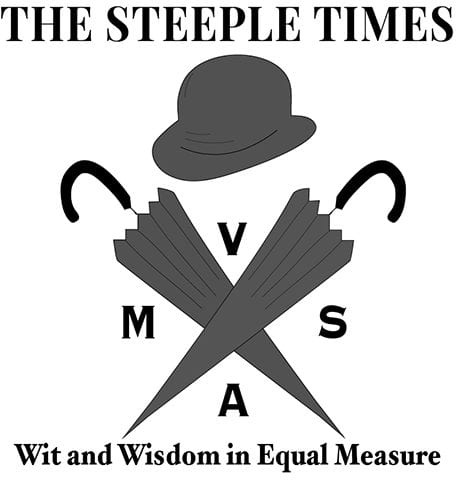Legal eagle David Lennox unravels the complexities of finding the best divorce lawyers in the UK and the USA. Discover the top law firms for wives, husbands, optimal settlements, and protective strategies
Divorce is a challenging, emotional process that becomes even more complex when legalities are added into the mix. Navigating the convoluted maze of family law requires the assistance of an experienced divorce lawyer who can guide you through each step, protecting your interests along the way.
In this article, we’ll guide you through the task of finding the best divorce lawyer for your specific circumstances, be it in the United Kingdom or the United States. We’ll highlight top-tier law firms known for their excellence in diverse aspects of divorce cases: from advocating for wives or husbands, to those known for securing optimal settlements, to firms adept at handling intricate financial matters for high-net-worth individuals.
Top UK Divorce Lawyers
Specialising in high-net-worth divorce cases, Stewarts Law is perfect for clients who have substantial assets to protect. With their vast experience, they excel in handling complex financial matters seamlessly.
Known for representing wives seeking fair settlements, Vardags has an impressive track record. Their dedicated team ensures each case is handled with utmost care and understanding.
Withers is renowned for its prowess in handling cross-border divorce cases involving international assets. For couples with global connections, they’re an excellent choice.
Top USA Divorce Lawyers
Based in the Pacific Northwest, McKinley Irvin is noted for their advocacy for husbands. Their lawyers are well-versed in the unique challenges men face in divorce cases.
A top choice for securing optimal settlements, this Los Angeles-based firm offers expert representation. Their vast experience in negotiation and litigation can make a considerable difference in your settlement.
With a focus on high-net-worth divorce cases, this New York firm provides strategic advice and representation for protecting substantial assets.


Making the Right Choice
The best divorce lawyer for you depends on your unique circumstances. Consider these top ten law firms in the UK and USA:
Best for Wives:
- Vardags (UK): Their empathetic, meticulous approach empowers wives to secure fair outcomes.
- Laura Wasser at Wasser, Cooperman & Mandles LLP (USA): Known as the ‘Disso Queen’, Wasser has represented numerous high-profile wives.
Best for Optimal Settlements:
- Mishcon de Reya LLP (UK): Known for their strategic negotiation skills.
- Wasser, Cooperman & Mandles LLP (USA): Their track record speaks volumes about their ability to negotiate favourable settlements.
Best for Husbands:
- Slater and Gordon (UK): Their robust advocacy protects husbands’ rights.
- McKinley Irvin (USA): They’re dedicated to representing and understanding the unique challenges husbands face.
Best for High-Net-Worth Individuals:
- Stewarts Law LLP (UK): Expertise in handling intricate financial matters.
- Berkman Bottger Newman & Rodd, LLP (USA): Top choice for high-asset divorce cases.
Best for Cross-Border Cases:
- Withers (UK): For those globe-trotting couples whose asset pool spans continents, Withers is your ticket to a well-handled international divorce.
- The Law Offices of Korol & Velen (USA): Their nuanced understanding of international divorce law makes them the perfect fit for cross-border cases.
Now, let’s add some spicy masala to our otherwise sober law curry. We present to you, the illustrious ‘Divorce Wall of Fame’:
The Wall of Fame
For those interested in the glitz and glamour side of divorce law (if there is such a thing), here’s our extended ‘Wall of Fame’ showcasing high-profile celebrity divorces and the impressive settlements they’ve garnered, showing the might and prowess of their legal representatives.
- Stewarts Law LLP (UK): As one of the UK’s most renowned law firms, they’ve handled a variety of high-profile cases. One notable client is multi-millionaire hedge fund manager Chris Hohn, whose divorce from wife Jamie Cooper resulted in a £337 million settlement, one of the largest in British history.
- Sears Tooth Solicitors (UK): “Don’t get even, get Tooth” is often said of Raymond Tooth – whose “tenacious approach in handling cases has resulted in his being nicknamed ‘The Rottweiler’ and ‘Jaws.’ The Daily Mail has noted him as “the nation’s leading celebrity divorce lawyer” and once suggested: “He knows a thing or two about the vicissitudes of matrimony.”
- Vardags (UK): Known for handling complex, high-net-worth divorces, Vardags represented the former beauty queen, Pauline Chai, in her divorce from Laura Ashley tycoon Khoo Kay Peng. This high-profile case resulted in a whopping £64 million settlement after a bitter and protracted battle.
- Withers Worldwide (UK): Withers guided Guy Ritchie through his complex, cross-border divorce from Madonna. The final settlement was rumoured to be between £50 million and £60 million, one of the most sizable in the entertainment industry.
- Payne Hicks Beach (UK): This prestigious firm represented the then Prince Charles in his divorce from Diana, Princess of Wales. The settlement, though kept private, was widely reported to include a lump sum of £17 million and an allowance for a private office.
- McKinley Irvin Family Law (USA): One of the top-rated family law firms in the US, they have represented high-net-worth individuals across industries, although the specific details are confidential.
- Wasser, Cooperman & Mandles, P.C. (USA): The star-studded clientele of Laura Wasser includes Angelina Jolie, Maria Shriver and Kim Kardashian. Wasser was instrumental in securing Jolie’s custody of her and Brad Pitt’s six children, while the monetary settlement remains undisclosed.
- Diggs & Sadler (USA): This Houston-based firm represented Elin Nordegren in her divorce from Tiger Woods. The Swedish model and the golf pro’s divorce resulted in a whopping $100 million settlement for Nordegren.
- Berkman Bottger Newman & Schein, LLP (USA): While keeping their client list under wraps, they have represented a significant number of high-earning individuals and have dealt with many multimillion-dollar settlements.
- Blank Rome LLP (USA): Notably represented Steven Spielberg during his divorce from Amy Irving. The settlement was reportedly a cool $100 million, thanks to a prenuptial agreement that was scribbled on a napkin and later dismissed by the judge.
- Pryor Cashman LLP (USA): The firm represented Rupert Murdoch in his divorce from Anna Murdoch. At the time, the settlement – estimated at a staggering $1.7 billion – was the most expensive divorce ever.
- Moses & Singer LLP (USA): Arlene Dubin of this New York firm, based in the Chrysler Building, represented Michael Douglas during his divorce in 2000. Diandra Luker Douglas ultimately received an estimated $45 million.
- Zuckerman Spaeder LLP (USA): The firm was hired by Juanita Jordan to represent her in her divorce from basketball legend Michael Jordan. The settlement reached an estimated $168 million, making it one of the largest public record divorce settlements in history.
The world of high-stakes celebrity divorce can be complex and contentious, but with the right legal counsel, even the most prominent stars can navigate these troubled waters. Of course, it’s not about the size of the settlement but achieving the best possible outcome for each unique situation. It just so happens that in Hollywood, that’s not always possible.
Divorce Disasters: When Things Went South…
While some celebrities walk away from divorce settlements with their pockets filled, others aren’t so fortunate. Here’s a look at some high-profile, high net worth divorces where the financial fallout was, let’s say, less than expected. Remember, this isn’t about blaming lawyers, but highlighting the complexities of these situations.
- Heather Mills and Paul McCartney: After a highly publicised and acrimonious divorce battle with her ex-Beatle husband, Heather Mills ended up with a £24.3 million settlement – a large sum by any standard, but a fraction of McCartney’s estimated £800 million net worth. Fiona Shackleton, McCartney’s lawyer, successfully argued down from Mills’ initial request of £125 million.
- Kevin Federline and Britney Spears: Federline reportedly received only $1 million from pop star Britney Spears in their 2007 divorce settlement, which seems relatively small given Spears’ huge success. Laura Wasser represented Spears in this case and was likely instrumental in the prenuptial agreement that protected most of her assets.
- Ted Danson and Casey Coates: In the 90s, Ted Danson, famous for his role on Cheers, left his wife of 15 years, Casey Coates, for his co-star Whoopi Goldberg. This decision reportedly cost Danson $30 million – nearly half of his net worth at the time – because of a generous prenuptial agreement. In this case, the marriage dissolution didn’t go ‘wrong’ legally, but Danson’s personal decisions led to an enormous payout.
- Michael Jordan and Juanita Vanoy: Michael Jordan’s first divorce from Juanita Vanoy ended in a $168 million settlement in favour of Vanoy. The basketball legend didn’t have a prenuptial agreement in place. While the settlement was fair, it could have been very different if they had had one in place.
- Madonna and Guy Ritchie: Guy Ritchie walked away with a staggering sum estimated at between £50 million and £60 million from his divorce from pop icon Madonna, the biggest payout from a female celebrity to her lesser-earning spouse at the time. While Ritchie was not disadvantaged, it illustrates the importance of financial planning, even when one spouse earns significantly more than the other.
These cases underline the importance of both parties having competent legal representation and the potential perils of entering into a marriage without a clear understanding of the financial implications. It’s not about ‘winning’ or ‘losing’ a divorce, but ensuring a fair and equitable outcome for all involved.


Choosing a Good Lawyer: The Art of Disclosure and the Importance of Honesty
Selecting a good lawyer is crucial, whether you’re navigating a contentious divorce or facing any legal issue. A competent attorney can mean the difference between a favourable outcome and an unfavourable one. So, how do you choose a good lawyer, and how should you present your case to them?
Choosing a Good Lawyer
Start with a focused search. Legal expertise is broad and varied, so you need an attorney who specialises in the area of law relevant to your case. In divorce proceedings, for instance, seek out a family law specialist who has a solid track record in divorce settlements.
Once you’ve shortlisted potential lawyers, research their reputation and experience. Look at online reviews and ask for references if possible. However, be aware that some reviews might be biased, so take them with a grain of salt. Additionally, make sure they have experience in the jurisdiction where your case will be handled. Different jurisdictions can have different rules and procedures.
The initial consultation is your opportunity to gauge if you’re comfortable with the attorney and their approach. Do they explain things in a way that you understand? Do they seem to have your best interests at heart? Remember, this person will be your advocate, so a positive rapport is crucial.
Cost is also a factor. Legal fees can vary greatly depending on the complexity of your case and the attorney’s reputation and experience. Be sure to ask about their billing practices upfront to avoid any unpleasant surprises.
Engaging with Your Lawyer
Now that you’ve chosen your lawyer, how do you engage with them effectively?
Full and frank disclosure is vital. Share every detail related to your case, even if you think it’s unimportant or detrimental. Lawyers need a comprehensive understanding of the situation to provide effective representation. It’s like giving a doctor all your symptoms; without complete information, they can’t diagnose or treat you effectively.
Your lawyer is bound by attorney-client privilege, meaning they’re legally obliged to keep your information confidential. So, don’t hold back. A detail you consider insignificant could be the key to your case.
The Importance of Honesty
While honesty is generally a good policy, in legal matters, it’s an absolute necessity. Lying or omitting facts can be disastrous. In court proceedings, if you’re caught in a lie, it can shatter your credibility, leading the court to view all your statements with suspicion. Even outside of court, dishonesty can lead to mistrust and conflict with your attorney, damaging a critical relationship in your case.
Honesty is particularly crucial in divorce proceedings, where financial and child custody issues can be contentious. For example, trying to hide assets can lead to severe repercussions, including financial sanctions and a potentially unfavorable ruling.
Engage in open and honest communication with your attorney. They’re there to help you navigate the legal minefield, but they can only do that effectively if they know the whole truth. Trust them to handle your information sensitively and strategically.
Remember, your lawyer is your ally in the legal process. Choosing the right one and engaging with them honestly and openly is paramount to ensuring the best possible outcome in your case.
Navigating the Attorney-Client Relationship: What to Say And What Not to Say…
Interacting with your lawyer is not as straightforward as one might think. While full disclosure is often advocated, there are indeed instances where revealing certain things to your lawyer might put them in a predicament. In this regard, divorce proceedings can be especially complicated due to their personal and emotive nature.
When Silence is Golden…
Firstly, while discussing your case, it’s essential not to fabricate facts or suggest to your lawyer that you plan to. Any indication of dishonesty, including manipulating evidence or lying in court, places your lawyer in an ethical dilemma and could lead them to withdraw from your case. The same applies to concealing assets or income during a divorce, which is not only unethical but also illegal.
In addition, discussing hypothetical illegal actions can be a tricky situation. For instance, saying: “What if I were to hide some of my assets?” implies a consideration of illegal activity. It’s always better to ask about the consequences of certain actions rather than suggesting you might engage in them.
Also, avoid criticising or talking ill of your ex-spouse unnecessarily. While it’s important to provide relevant information about their behaviour, especially if it directly affects custody or alimony decisions, engaging in character assassination can make you appear vindictive and could potentially harm your case.
What Should be Said…
On the other hand, it’s important to be transparent about your financial situation, including all assets and liabilities. Be honest about any marital misconduct like adultery, as these can impact the case. If there are any existing restraining orders or accusations of abuse, your lawyer needs to know. Discuss your expectations and goals openly – whether related to custody, division of property, or financial support.
Remember, your lawyer is on your side, but they can only do their job effectively with a clear understanding of your circumstances. That said, they are not your therapist. Avoid discussing issues that aren’t legally relevant or using meetings as a venue for venting personal frustrations.
Remember: When in doubt, it’s always better to ask your lawyer whether something is relevant or necessary to disclose. They can guide you based on their professional knowledge and experience, and the specific legal and ethical rules that apply.
The Intricacies of Attorney-Client Confidentiality
Understanding attorney-client confidentiality can also be crucial when deciding what to disclose. This privilege protects most communications between clients and their lawyers, enabling you to be candid about the facts of your case without fear that your lawyer will disclose your statements. However, there are important exceptions to this rule.
In the US, lawyers cannot assist clients in committing a crime or fraud. If a client tells a lawyer about a plan to engage in illegal activity, the lawyer may be required to disclose this information. Also, if a client admits to past illegal conduct, the attorney generally cannot disclose it unless the client consents, or the attorney believes it is necessary to prevent substantial bodily harm or death.
In the UK, the legal principle of confidentiality is similar, although there are circumstances where the lawyer may be obliged to breach confidentiality, like when the lawyer suspects the client is using their services to commit a crime or fraud. Legal professionals in the UK also have obligations under money laundering regulations, which could force them to report suspicious activities.
These nuances underscore the importance of honesty and openness while communicating with your lawyer. If you feel the need to withhold information, it’s better to discuss this instinct with your lawyer directly. They can provide guidance about what they can keep confidential and what they may need to disclose.
Think of the Children: The Human Side of Divorce
While it’s natural to focus on winning your case, it’s equally important to consider the human element, especially when children are involved. The psychological impact of a contentious divorce on young minds cannot be overstated. In the heat of the legal battle, normal, right-minded people can become obsessively focused on achieving their desired outcomes, sometimes losing sight of the collateral damage being caused.
Numerous studies have shown that it is not the divorce itself, but rather the conflict associated with it, that can cause profound emotional harm to children. They may feel caught in the middle, forced to choose sides, or even blame themselves for the breakdown of the family.
In many cases, winning at all costs can end up being a pyrrhic victory. The toll taken on your children’s emotional well-being and your ongoing relationship with them can far outweigh any material gains. It’s crucial to keep perspective during this challenging time, prioritizing the long-term emotional health and happiness of all involved over any short-term legal victories.
Remember, the best divorce lawyer isn’t always the one who fights tooth and nail for every last penny or asset. Sometimes, the most effective lawyer is the one who helps navigate the rough emotional waters of divorce while protecting both their client’s interests and the well-being of the children involved. After all, the true measure of success in any divorce should be the ability to start the next chapter of your life on a positive and healthy note.
If you decide to use any of the lawyers mentioned in our article, please mention that you found out about them through The Steeple Times. Hopefully, they might do the decent thing and, at the least, send a politely worded thank you note and please remember this; divorce is never going to be polite, but it can be done in a civil fashion.
David G. Lennox is a retired solicitor, an occasional restaurant critic for ‘The Steeple Times’ and an avid consumer of margaritas. He has been known to pen an odd word or two about the ‘Sport of Kings’ and the ‘Beautiful Game’ also. Follow him on Twitter at @davidglennox.
Editor’s Note – Unlike as is the case in many publications, this article was NOT sponsored or supported by a third-party.
Disclaimer – Attorney-client privilege and confidentiality can be complex and varies depending on jurisdiction and circumstances. This article provides general information and does not constitute legal advice. Always consult with a legal professional to understand your rights and obligations fully.
This article is meant to provide general guidance on communicating with your lawyer. It does not constitute legal advice, nor does it establish an attorney-client relationship. Every legal situation is unique, and advice must always be tailored to the specific circumstances. Therefore, for your situation, you should consult a lawyer directly.










Very interesting info. Harry take notes & leave all & any broken China behind. Just sayin
